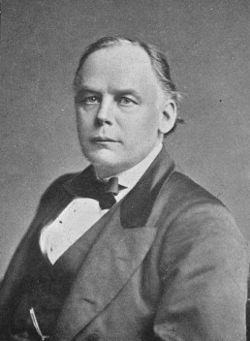Charles Bradlaugh Quote
Related Quotes
I want to think about trees. Trees have a curious relationship to the subject of the present moment. There are many created things in the universe that outlive us, that outlive the sun, even, but I ca...
Annie Dillard
Tags:
beauty, belief, consciousness, creation, curiosity, disbelief, energy, enoughness, epiphany, exploration
With school turning out more runners, jumpers, racers, tinkerers, grabbers, snatchers, fliers and swimmers instead of examiners, critics, knowers and imaginative creators, the word 'intellectual' of c...
Ray Bradbury
Tags:
books, breach, bright, bullying, burning, conform, constitution, cowardice, creativity, critics
About Charles Bradlaugh
Charles Bradlaugh (; 26 September 1833 – 30 January 1891) was an English political activist and atheist. He founded the National Secular Society in 1866, 15 years after George Holyoake had coined the term "secularism" in 1851.
In 1880, Bradlaugh was elected as the Liberal MP for Northampton. His attempt to affirm as an atheist ultimately led to his temporary imprisonment, fines for voting in the House of Commons illegally, and a number of by-elections at which Bradlaugh regained his seat on each occasion. He was finally allowed to take an oath in 1886. Eventually, a parliamentary bill which he proposed became law in 1888, which allowed members of both Houses of Parliament to affirm, if they so wished, when being sworn in. The new law resolved the issue for witnesses in civil and criminal court cases.
In 1880, Bradlaugh was elected as the Liberal MP for Northampton. His attempt to affirm as an atheist ultimately led to his temporary imprisonment, fines for voting in the House of Commons illegally, and a number of by-elections at which Bradlaugh regained his seat on each occasion. He was finally allowed to take an oath in 1886. Eventually, a parliamentary bill which he proposed became law in 1888, which allowed members of both Houses of Parliament to affirm, if they so wished, when being sworn in. The new law resolved the issue for witnesses in civil and criminal court cases.
